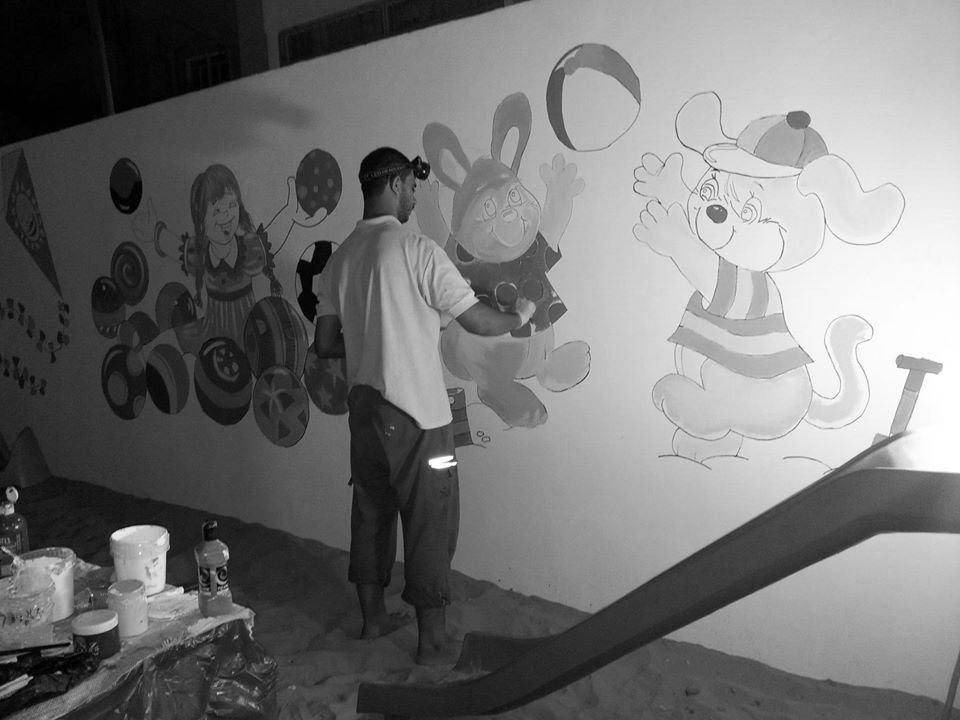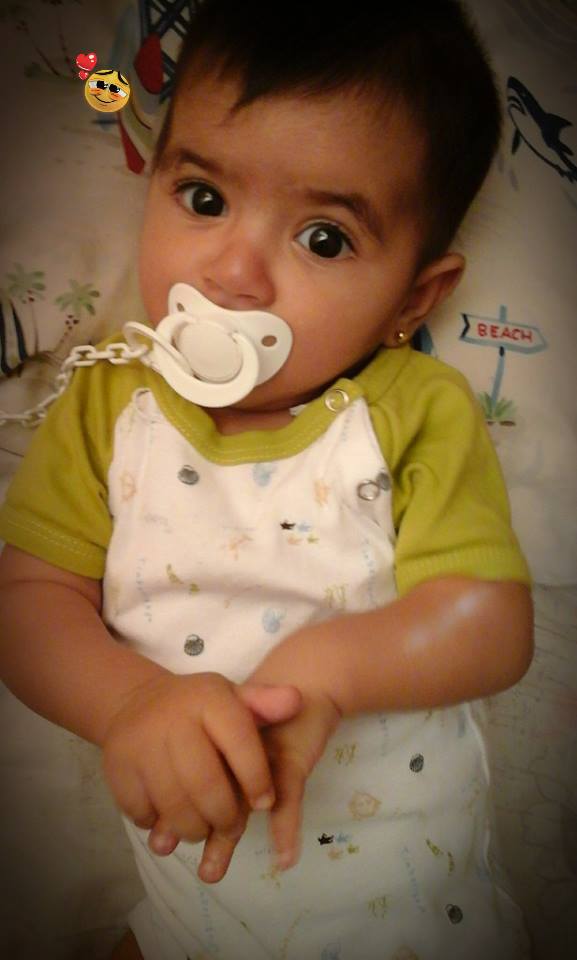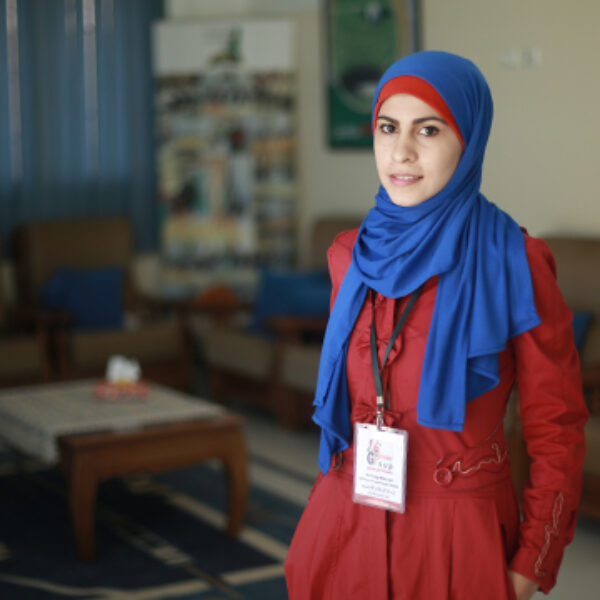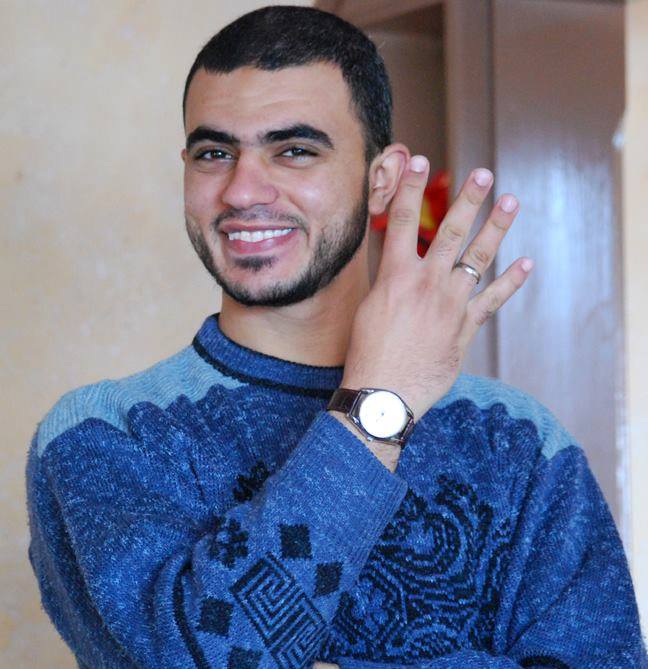
It was 6 a.m., the sky was clouded with warplanes and the birds had long scattered as if to avoid witnessing the coming genocide. Only the trees, rooted in place, silently watched the unfolding horror. Amid the chaos, destruction and death that had become the Shujaiya neighborhood, the ambulance sat, the crew working frantically on the injured people inside as Khaled Hamad did his best to capture on film the terrible events unfolding before his eyes.
Moments later, the vehicle was targeted by an Israeli missile. Hamad, along with the rescue crew, tumbled from the ambulance, disoriented and injured, trying desperately to make sense of what had just happened. The air was thick with dust, smelling of blood and echoing with the screams of the terrified and suffering. Moments later, a second strike left them crumpled on the ground, bleeding to death.
During the 2014 Israeli offensive against Gaza, hundreds of innocent Palestinian civilians, medics and journalists were among those murdered. Khaled Hamad was one of these victims. His own camera captured his death forever. He had been working on a documentary about the difficult and increasingly life-threatening work of paramedics in the Gaza Strip during the ongoing assault. After hearing of the chaos that had broken out in the Shejaiya neighborhood, where more than 70 people were killed overnight, Hamad had grabbed his only weapon—his camera—and joined an ambulance crew of paramedics en route to the area.
His wife, Hala, is still stuck in that night. She still remembers the scene vividly. She had had a bad feeling right from the start. "I felt it," she says, her eyes glistening with tears. "His eyes were saying farewell to every corner in the house. He hugged me like he had never hugged me before, and I begged him to not work, but he left."

Hala, 22, a sophomore studying press and media at the Islamic University in Gaza, had another reason to fear her husband's safety: she was pregnant.
Now a widow, Hala today is mother to a little girl named Tolien. "Khaled had expected the baby would be a boy and his name would be Walied, but Walied was not to be." Hala explains. "Tolien was the name we chose if our baby was a girl. We had been planning everything, for our entire life together. Everything: the names of all of our children, their rooms and schools, my university. Even the toys. After a few days of my pregnancy, Khlaed returned home carrying so many toys, both for girls and boys. He was crazy in love with our unborn child and so was I."
After only three months of marriage and 11 months of engagement, Hala must spend the rest of her life with only his memory. “I feel him touching my cheek and wiping away my tears,” she says. “He is still alive. His smell, laugh and voice occupy the air, surround me. But he is no longer shopping with me, or hearing the heartbeat of our baby, our fatherless Tolien."
She pauses as if trying to say everything she could about Hamad. She recalls, smiling, "I would intentionally find reasons to be angry, just so he would sing or paint to make me, his pampered wife, happy again. Do you know what it feels like to wake up to the sound of his marvelous voice reciting poetry? How can I count the many special things he made for me, so many that my friends envied me for having such a husband?"
But then the end came. "When the news started reporting the massacre happening in the Shujaiya neighborhood, I ran to Hamad's family’s flat. I screamed. Hamad's parents and siblings were staring at the TV screen, anxiously looking for some sign of life, since Hamad was not answering his mobile. My brother telephoned, saying, 'Your husband is injured but still alive. Do not worry.' Then I saw on TV the dead body of Khaled. He bled to death," Hala sobbed. "My life stopped when his heartbeat stopped.”
She hugged her Tolien tightly. "But I am Hala, Hamad's wife, the woman of a true man. The man who had a part of him inside me, our Tolien. I prayed desperately that my unborn child would resemble her father and now, when I look at her, I see them both."
Ten days after his death, Hala received the video of his death. She has watched it several times. The camera kept filming even after he was attacked, capturing his last moments. “His last cry of pain endlessly echoes in my ears, while the sound of heavy shelling can be heard in the background,” she sobs.
Hala is back at school now. She's determined to complete Hamad's work in documenting the hardships and suffering of Palestinians, despite those who want to silence it.
There are dozens of Hamads who were killed by deliberate attacks on the media during the summer assault of 2014, while doing their jobs to ensure the truth was told. The question remains, how will we/Palestinians/widows seek justice for the Tolieens, those boys and girls who will grow up deprived of a father?
Hala's message to our oppressors: You must know that we Gazans have seen hell on earth. And yet we still believe in heaven.
Mentor: Nick Fuller Googins
Posted October 6, 2015










